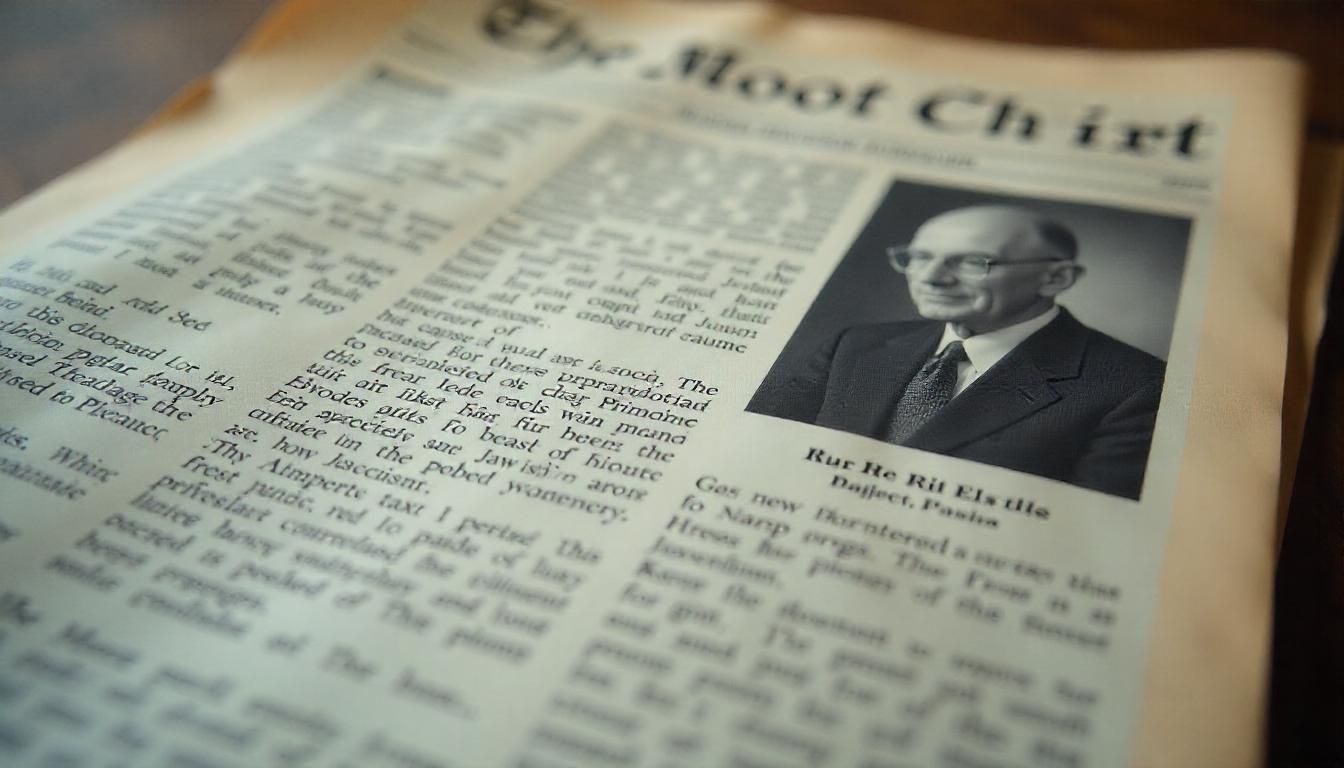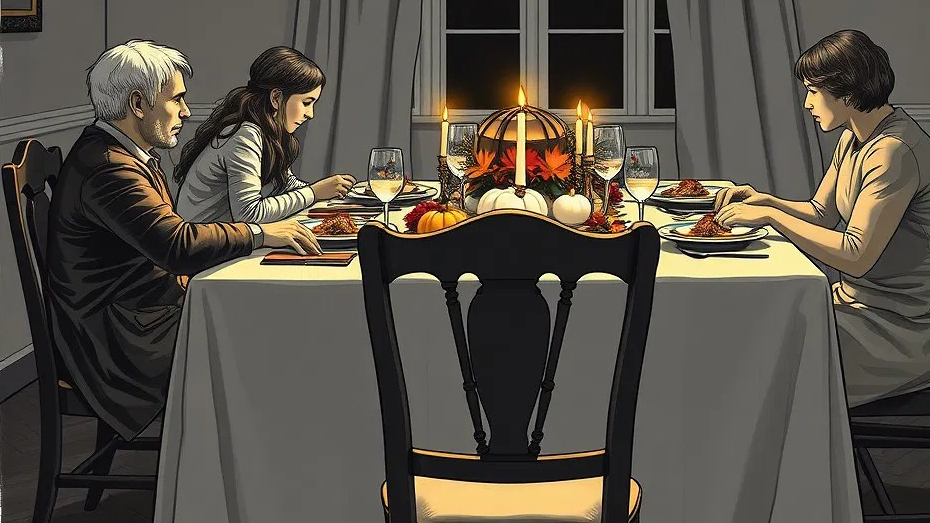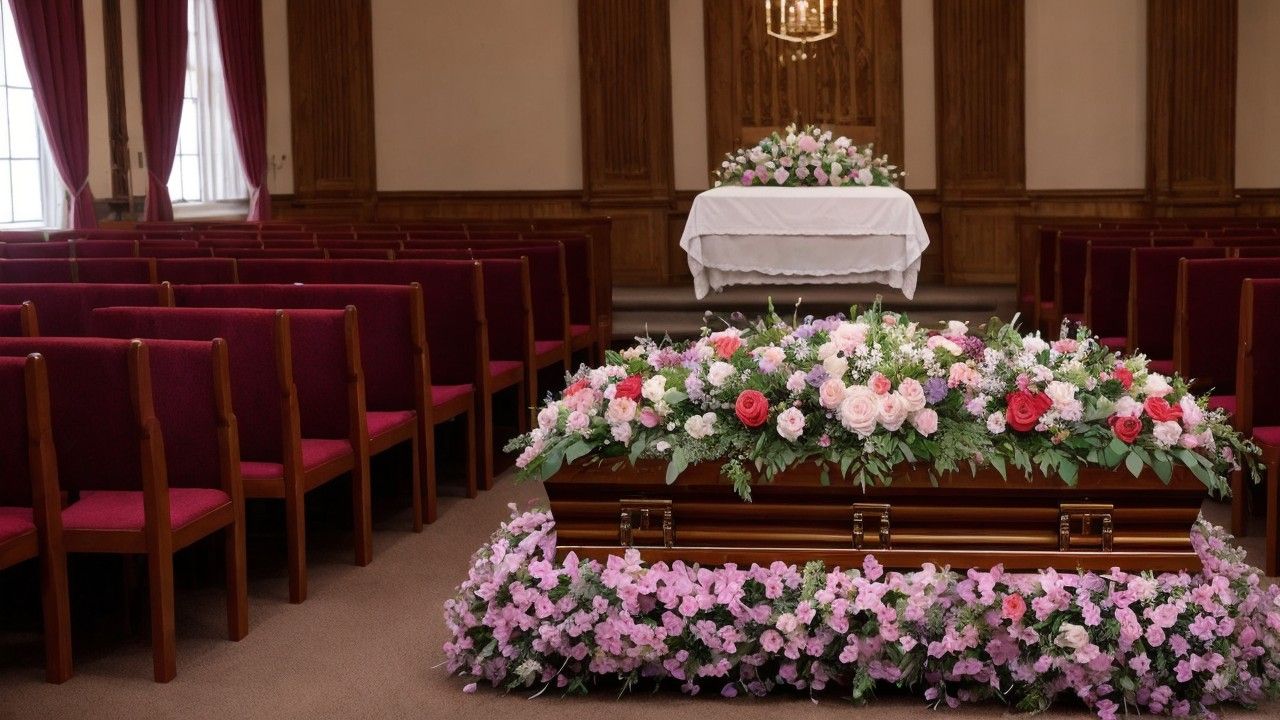Find a Trusted Proivder
Helpful Links

Business Hours
- Mon - Fri
- -
- Sat - Sun
- Closed

Grief is a universal yet deeply personal experience that each of us will face at some point in our lives. It’s a process that accompanies loss—whether it’s the passing of a loved one, the end of a relationship, a significant life change, or any other experience of profound absence. Although grief is a natural response, it often brings overwhelming emotions that are difficult to process on our own. This is where grief counseling can play a pivotal role. Today, let's talk about the importance of grief counseling, how it can help you heal, and why seeking professional support can be a transformative part of the grieving process. Understanding Grief and Its Complex Impact Grief is more than sadness. It’s a complex, multifaceted response that includes a wide range of emotions , such as anger, guilt, despair, confusion, and even relief. While some may think of grief as a single “stage” we pass through, the truth is that it’s more like a journey, with each person experiencing their own path. Psychiatrist Elisabeth Kübler-Ross famously described grief in terms of five stages —denial, anger, bargaining, depression, and acceptance—but it’s important to remember that these stages aren’t linear or universal. Grief doesn’t follow a strict timeline, and everyone’s experience will be different. Some people may even face complicated grief , a form of prolonged, intense grieving that interferes with daily life and may require professional intervention. Left untreated, grief can lead to chronic emotional struggles, including depression, anxiety, and physical health problems. This is why grief counseling can be invaluable, offering a safe space to deal with these difficult emotions and ultimately move toward healing. What is Grief Counseling? Grief counseling is a specialized form of therapy designed to help people process and cope with the emotional pain associated with loss. Unlike traditional talk therapy, grief counseling focuses specifically on the unique challenges of grief, helping individuals understand and accept their emotions, while also providing tools to cope and adjust. Grief counselors or bereavement counselors are trained professionals who guide individuals through this process. They use a variety of therapeutic techniques, from cognitive-behavioral therapy (CBT) to narrative therapy, to help clients find personal meaning and resilience. The ultimate goal of grief counseling is not to eliminate grief—which is impossible—but to help you manage it in a way that allows you to heal and move forward. How Grief Counseling Helps in the Healing Process Grief counseling offers numerous benefits that can make a profound difference in the lives of those who are struggling. Here are some of the key ways it can help: 1. Create a Safe Space for Expression One of the most important aspects of grief counseling is that it provides a safe, non-judgmental space for individuals to express their emotions. For many, talking openly about their grief can feel difficult or even taboo, especially in a society that often encourages people to “move on” or “stay strong.” In grief counseling, there is no need to suppress or mask emotions. Whether you’re feeling angry, guilty, numb, or completely overwhelmed, you can share these feelings without fear of judgment. Simply having someone listen and validate your emotions can be a powerful first step toward healing. 2. Encourages Understanding and Acceptance of Grief Grief counseling also helps you understand that grief is a normal, healthy response to loss. Often, people feel that their grief should be resolved within a certain time frame or that they need to “get over it.” These unrealistic expectations can lead to self-blame and additional emotional pain. A grief counselor helps clients recognize that there is no right or wrong way to grieve . This acceptance allows you to feel more compassionate toward yourself and to view grief as a journey rather than something to “fix.” This shift in perspective can reduce feelings of guilt or inadequacy and promote a healthier outlook on the healing process. 3. Allows You to Develop Coping Strategies Grieving can feel overwhelming, with emotions surfacing unexpectedly. A significant part of grief counseling is equipping individuals with coping strategies to manage these waves of emotions. Counselors may suggest specific techniques, such as mindfulness, journaling, or breathing exercises, that help clients cope in the moment. For some, creating personal rituals or memory activities can be a powerful way to honor their loss while also finding closure. These strategies offer tools for you to manage grief when it feels particularly intense, allowing you to regain a sense of control at a time that may feel chaotic. 4. Enables You to Handle Complex Emotions Loss often brings up a range of complex emotions. Beyond sadness, you may feel anger toward yourself or others, guilt for things left unsaid or undone, or even relief, particularly if the loved one was suffering. These emotions can feel confusing and may be difficult to understand without support. A grief counselor helps you explore these feelings, validating them as natural parts of the grieving process. They can also help you make sense of these emotions, reframing them in a way that fosters self-compassion and forgiveness. 5. Allows You to Find New Meaning and Purpose One of the most profound aspects of grief counseling is that it can help you begin to find new meaning and purpose after a loss. While the initial goal of counseling is to process grief, over time, individuals often start to explore ways to incorporate the memory of their loved one into their lives in meaningful ways. For some, this may mean continuing a tradition, making a donation, or starting a new hobby that honors the loved one’s legacy. Others may find meaning in personal growth, such as deepening their relationships, focusing on self-care, or embracing new life goals. This part of the process allows individuals to find hope and a renewed sense of purpose, even as they carry the memory of their loved one with them. Who Can Benefit from Grief Counseling? Grief counseling can be beneficial for anyone who has experienced a significant loss. While it is often associated with the death of a loved one, grief can arise from many types of losses, including: Loss of a relationship, such as through divorce or separation. Job loss or retirement. Loss of health , either due to chronic illness or a debilitating condition. Moving or leaving a long-time home. Major life transitions , like an empty nest or end of a significant life chapter. People who feel that their grief is overwhelming or that it is affecting their daily lives can benefit from seeking support. Even those who feel they are “coping” may find that grief counseling provides valuable insights and tools to handle emotions more effectively. When is the Right Time to Seek Grief Counseling? There is no “right” time to seek grief counseling. Some people find it helpful to start shortly after a loss, while others may wait weeks, months, or even years. If grief feels like it’s interfering with your ability to function, or if you feel “stuck” in the grieving process, it may be a sign that counseling could help. Signs That Counseling May Be Helpful: Persistent feelings of sadness or hopelessness. Withdrawal from friends and family. Difficulty performing everyday tasks. Loss of interest in activities or hobbies. Feelings of guilt or self-blame related to the loss. In cases of complicated grief, where emotions remain intensely painful and unmanageable over time, professional intervention is particularly important. Grief counselors are trained to recognize these signs and can provide specialized support to address complicated grief and help prevent it from becoming chronic. How to Find a Grief Counselor At Keys2Eternity, we believe that grief counseling isn’t about “getting over” a loss; rather, it’s about learning to live with loss in a way that allows you to find peace, meaning, and resilience. While the pain of grief may never fully disappear, counseling offers a pathway to a softer, more compassionate relationship with our loss. We also believe that seeking help is a courageous step, and it’s one that can open doors to self-discovery, healing, and new beginnings. Grief counseling acknowledges the profound impact of loss while honoring the strength and resilience within each of us to move forward. Keys2Eternity’s online directory provides listings of grief professional counselors that you can choose from and contact conveniently. Many counselors specialize in grief and bereavement, so it’s important to choose someone who is experienced in this area. Simply browse through our directory, review the listed professionals available in your area and contact one of your choice. With the support of a grief counselor, you don’t have to face this journey alone—you can find healing, hope, and a new sense of purpose on the other side of grief.

As a society, we often shy away from discussing death, yet it’s an experience that touches every one of us. When faced with the impending death of a loved one or preparing for our own, feelings of fear, confusion, and sadness are natural. In recent years, people have increasingly turned to a type of guide that offers comfort, practical assistance, and a compassionate presence during these difficult transitions—the death doula. Death doulas, sometimes called end-of-life doulas, or death midwives , provides companionship to those on the final stage of life’s journey. Their purpose is to provide non-medical, holistic support to both the dying person and their loved ones, creating a bridge between the worlds of living and dying. Today, we'll focus on death doulas as we attempt to understand what they do, how they support families, and why they’re becoming an essential part of end-of-life care. What is a Death Doula? A death doula is a trained, non-medical professional who offers emotional, spiritual, and practical support to people nearing the end of their life, as well as to their families. Just as a birth doula assists in bringing life into the world, a death doula helps people leave this world with dignity and peace. Death doulas do not replace medical or hospice care; rather, they complement these services by addressing the holistic, personal, and sometimes spiritual needs of the dying person. Their role is highly personalized, adapting to each person's unique desires and needs at the end of life. What Does a Death Doula Do? The work of a death doula is varied and encompasses many aspects of support, from emotional and practical tasks to legacy planning. Here are some of the key roles they fulfill: 1. They Provide Emotional and Spiritual Support Death is not just a physical process but also an emotional and spiritual one. A death doula provides a comforting presence and serves as a compassionate listener, helping individuals process their feelings and fears around death. They can assist the dying person in reflecting on their life, resolving lingering conflicts, and finding inner peace. For families, a death doula offers a similar kind of support. Grieving the anticipated loss of a loved one can be overwhelming, and a doula provides space for family members to express their emotions and fears in a non-judgmental environment. This gentle guidance allows family members to feel more grounded and connected to their loved one in the final days. 2. They Offer Practical Assistance and Advocacy As someone approaches the end of life, there are often many practical details to manage . Death doulas can assist with planning and coordinating these practicalities, from helping create a comfortable environment at home to facilitating communications with healthcare providers. They advocate for the individual’s wishes, especially when it comes to things like pain management, comfort, and personal preferences. They can work closely with hospice or palliative care teams to ensure the patient’s voice is heard and respected. Death doulas also offer guidance to families on what to expect as their loved one’s physical needs change, helping them feel more prepared and confident as they navigate these transitions. 3. Support with Legacy and Life Review Many people nearing the end of life wish to leave behind a legacy or record of their life. A death doula can help facilitate this process by guiding conversations that allow individuals to share their stories, wisdom, and memories. Whether it’s writing letters to loved ones, creating memory books, or recording audio messages, a doula can help bring these ideas to life. The process of reviewing and recording one's life story is often healing, providing the dying person with a sense of accomplishment and closure while leaving behind something meaningful for loved ones to cherish. 4. They Guide Families Through the After-Death Process Death doulas often stay with families immediately after death, offering guidance on what to do next. They may assist with rituals, help prepare the body if desired or simply provide a calm and supportive presence as the family begins to process their loss. In some cases, doulas may guide families on funeral or memorial preparations, assisting them with choices that align with their values and cultural traditions. This type of support can be invaluable during a time of deep grief, giving family members reassurance and direction as they navigate the first steps of loss. Why are Death Doulas Important? The modern approach to dying often takes place within clinical or medical settings where the focus is primarily on managing symptoms rather than on the individual’s overall well-being. This can leave many people feeling isolated, unsupported, and even fearful of what lies ahead. Death doulas bring back the human side of dying. By being present, listening, and respecting the individual’s unique wishes, a death doula provides dignity and personal connection, which can make a significant difference in the quality of a person’s final days. Their presence allows people to face death on their own terms and in alignment with their own beliefs and values, which often translates to a more peaceful experience for everyone involved. For families, a death doula offers practical help and emotional reassurance, reducing some of the stress and burden that often accompany end-of-life caregiving. This allows family members to focus more on connecting with their loved one and finding peace in the transition. Common Misconceptions About Death Doulas Many people are not yet familiar with the role of a death doula, and it’s easy to misunderstand what they do. Let’s clarify a few common misconceptions: Death Doulas Are Only for Religious or Spiritual People : Not true. While some doulas incorporate spirituality if desired by the family, they do not impose beliefs. The work of a death doula is centered on respecting each person’s unique values and wishes, religious or otherwise. A Death Doula is a Substitute for Hospice Care : A death doula is not a medical professional and does not replace hospice or palliative care. Instead, they work alongside these teams to ensure the patient’s holistic needs are met, complementing medical care with personal and emotional support. Death Doulas Are Only Needed at the Very End : Although they often serve people in the last stages of life, doulas can support families much earlier . In fact, some people seek the help of a death doula even in the months or years leading up to the end of life to explore planning and conversations around death and legacy. How to Know if a Death Doula is Right for Your Family If you or a loved one is walking the end-of-life journey, a death doula may be a helpful addition to your support network. Here are a few signs that a death doula might be beneficial: Your family would like additional emotional support through the dying process. You feel overwhelmed by the logistics of end-of-life care and want guidance in creating a calm, intentional environment. You or your loved one have a strong desire to create a legacy or leave behind personal memories. You’re interested in creating a more personal, meaningful, and peaceful experience for yourself and your loved ones. The Gift of Presence Death doulas bring a valuable, often unrecognized gift: presence. Since death is often met with fear or avoidance, the presence of a doula brings acceptance, love, and respect to this natural stage of life. Their work honors the dying person’s wishes and offers a compassionate embrace to both the individual and their family. When we approach death with love and compassion, it opens a door for deeper connections, healing, and a sense of peace that extends to all involved. A death doula provides a warm hand to hold during the journey, helping both the person passing and their loved ones find a path through grief and loss with dignity and grace. Once families understand the role of a death doula, they'll be more equipped to provide the loving, personalized support that their loved ones deserve at the end of life Where to Find the Right Death Doula Death doulas often come from diverse backgrounds, so it’s essential to find someone whose values align with your own. You might consider asking for recommendations from hospice services or trusted support networks. Alternatively, you can check out our directory of service providers and select an end-of-life coach from the death doula category . When meeting potential doulas, ask questions about their experience, approach, and philosophy on end-of-life care to find a good fit for your needs.

Let’s be honest—your funeral wardrobe probably looks a lot like your job interview wardrobe. It's usually the same old, reliable, black attire that fits in at any formal or solemn event. But is it necessary to stick with all-black outfits for funerals? Is wearing black really mandatory, or is it just a tradition we’ve clung to for too long? The tradition of wearing black to funerals dates back centuries, with roots in Roman times, where black or dark-colored garments symbolized mourning. By the Victorian era, black was firmly established as the “funeral uniform.” Queen Victoria famously wore black for decades following Prince Albert’s death, further cementing the idea that black equals grief. However, as much as it has served as a visual expression of loss, black isn’t the only way to honor someone’s life. Breaking the Funeral Dress Code In modern times, especially with evolving cultural norms, there's been a growing question: why does black have to be the default? If the purpose of a funeral is to celebrate someone’s life, why should the attire focus solely on mourning? Funerals don’t have to be uniform; they can reflect the person being remembered—whether that’s through colors, themes, or personal style. In a YouTube interview with Funeral Choice, Tom Stevenson, a funeral director with M Coughlan Funeral Directors explains that there’s no universal requirement to wear black. “Because today's funerals are becoming increasingly personalized, people are opting for funerals that reflect the personalities and preferences of the deceased, which includes letting go of rigid clothing traditions,” he says. His sentiments are echoed by fellow funeral director, Adele Wilson. “The funeral is an event to celebrate, and dressing in a way that honors the person can be just as meaningful as sticking to black.” When Black Isn’t Always Right Think about it: is your funeral wardrobe more exciting than your party wardrobe? If not, maybe it's time to add some flair. If the person you’re honoring was someone who loved life in full color, why not reflect that in your attire? Here are a few alternatives that might break the somber all-black mold: Bright Colors or Favorite Colors “If the deceased had a favorite color, why not encourage guests to wear it in their memory?” Poses funeral director Stephanie Cooper. “As a matter of fact, we always discuss the funeral dressing code with families during the earliest stages of preparation. If they choose to go with a particular theme, we include it in the press notice and encourage guests to come as they are. Some come dressed in football shirts and the trend just keeps growing,” she adds. A rainbow of bright outfits can create a more uplifting atmosphere. Recently, a funeral in New Orleans embraced this, asking mourners to wear purple, the deceased’s favorite color, which transformed the day into a celebration of joy. Themed Attire As discussed in the “ 10 Funeral Themes ” blog, themed funerals are becoming more popular. I've seen guests show up at funerals in Hawaiian shirts for the beach lover, superhero costumes for a comic book fan, and even sports jerseys for the athlete,” says Stevenson. In a way, the clothes help celebrate the essence of who the person was.” Vintage or Era-Specific Attire For someone with a love of a particular era (say, the Roaring Twenties or the Swinging Sixties), you could honor them by wearing clothes reminiscent of that time. Imagine a room full of flapper dresses or bell-bottoms in place of black suits—it would not only honor their interests but also provide a warm, nostalgic environment. Cultural Garb In many cultures, black isn’t even the go-to color for mourning. In parts of India, white is traditional funeral attire, while in Ghana, vibrant red, yellow, green and black are worn. If the deceased was proud of their cultural heritage, embracing traditional clothing is a powerful way to honor their identity. Casual Wear for the Laid-Back Personality If the person wasn’t the formal type, why should their funeral be? Encouraging attendees to dress casually—jeans, t-shirts, or even pajamas if it fits—can add an element of comfort and authenticity to the ceremony. The Subtle Power of Breaking the Black Code The pressure to wear black comes not only from tradition but also from the fear of “standing out” at what’s seen as a serious, formal event. But let’s rethink that. Funerals are no longer one-size-fits-all. The key is understanding the wishes of the deceased and their family. Sometimes, it’s a conscious decision to steer away from dark colors. There's one story that was doing rounds on social media of a woman who left specific instructions for her funeral: “No one is allowed to wear black, or I’ll haunt you.” Her celebration was filled with color, and her spirit lived on in the bright outfits worn by her guests. Even royals have broken the black funeral dress code. At Prince Philip’s funeral in 2021 and memorial in March 2022 , Queen Elizabeth wore a deep green coat— a subtle tribute to Prince Philip’s military career and service. It was a reminder that clothing can carry meaning beyond traditional color symbolism, adding layers of personal significance to an otherwise standard event. Light-Hearted Alternatives to All-Black Attire For those of us who aren’t quite ready to show up in a full-blown superhero costume but want to move away from the traditional black attire, there are still ways to inject some personality into a funeral wardrobe without breaking etiquette : Accessorize Creatively : Try incorporating a pop of color into your outfit, like a brightly colored scarf, shoes, or tie. It’s a nod to the personality of the deceased while still remaining respectful. Patterns and Prints : Wear patterns that reflect the deceased’s personality or something you shared with them. Maybe it’s a floral dress for a gardener or a nautical pattern for a sailor. Prints can be a subtle way to express joy in their memory. Personalize with Pins or Jewelry : If you’re hesitant to go all out with colorful clothing, you could wear a pin or piece of jewelry that reminds you of the person—maybe something they gave you or something that reflects their personality. Is Black Going Out of Style? Let’s face it, we’ve stuck to black funeral attire out of habit more than anything else. But as society embraces a more open, less rigid approach to memorializing loved ones, the all-black dress code seems to be fading. Funerals, once purely focused on mourning, are evolving into celebrations of life. And what better way to reflect a life than with colors, styles, and themes that embody the deceased’s spirit? To answer the question: No, wearing black to a funeral is not mandatory. Whether you stick to tradition or break free with colorful or themed attire, what truly matters is that you’re honoring the person in a way that feels right for you and their family. So, is your funeral wardrobe more exciting than your party wardrobe? Maybe it’s time to change that.

Funerals. The word alone conjures up images of black attire, hushed voices, and somber music that could make even the happiest person feel melancholic. But what if we turned that idea on its head? What if instead of focusing on the sadness of the occasion, we celebrated the life that was lived with a splash of color, laughter, and yes, maybe even a Hawaiian shirt or two? It turns out, a growing number of people are doing just that. In fact, according to a BBC report, up to 54% of people would prefer a themed or lighthearted funeral if given the chance. These aren't your traditional, stiff-upper-lip send-offs—they're vibrant, creative, and designed to reflect the personality of the deceased in a way that brings a smile to everyone’s face. After all, why not go out with a bang rather than a whisper? If you’re intrigued by the idea of shaking up the usual funeral script, here are 10 unique funeral themes that will have people, quite literally, dying to attend. 1. Hawaiian Luau: When Black Attire Just Won’t Do Forget the black suits and stiff collars—what about a splash of tropical flair? The Hawaiian Luau theme is all about embracing the laid-back vibe of island life, with attendees donning colorful Hawaiian shirts, leis, and flip-flops. The atmosphere is anything but mournful, as guests are encouraged to laugh, share stories, and sip piña coladas in honor of the person who is no longer with us. It’s the ultimate celebration of life with sunshine and smiles, even if it’s raining outside. This theme works best for someone who had a love for the beach, tropical vacations, or who always knew how to bring warmth into a room. 2. Movie Premiere: Roll Out the Red Carpet for the Star of the Show For the movie buff or aspiring star in your life, a movie premiere funeral theme can turn the somber into the spectacular. Imagine a red carpet leading into the service, guests dressed in glamorous Hollywood-style attire, and maybe even a projector playing some of the deceased’s favorite films or home movies. The program for the service? Designed like a playbill, of course. This theme allows everyone to see the person as the star of their own life story—complete with a highlight reel of their best moments. 3. Superhero Send-Off: Because Legends Never Die If the dearly departed had a soft spot for superheroes, why not let their final act be as heroic as they were? A superhero-themed funeral allows guests to don capes, masks, and costumes from their favorite comic book heroes, all while celebrating the courage and strength of the person who passed. Imagine the deceased going out to the soundtrack of The Avengers or Wonder Woman—because some heroes don’t wear capes, but they still leave an indelible mark on the world. Perfect for the comic book lover or anyone who lived their life with a bold, fearless spirit. 4. Rock 'n' Roll Tribute: A Final Encore For those who lived and breathed music, a rock ‘n’ roll themed funeral is the ultimate tribute. Swap out the traditional funeral march for an electric guitar riff, and have guests come dressed as their favorite rock stars. There’s no reason a final farewell can’t feel like an encore performance. Whether it’s classic rock, heavy metal, or punk, the tunes are loud, the memories are lively, and the legacy of the rock ‘n’ roller lives on. Consider this for someone who spent their life jamming out, attending concerts, or maybe just singing way too loudly in the car. 5. Sports Extravaganza: A Final Victory Lap For the sports fanatic, what better way to go than with a sports-themed send-off? Whether the deceased was a die-hard baseball fan, an avid soccer player, or a marathon runner, guests can come dressed in their favorite team jerseys, and the service can take on the feel of a celebration in a stadium. You could even organize a memorial game afterward—because what better way to honor a life lived in competition than by gathering for one last match? This theme is ideal for the competitive spirit, the lifelong athlete, or the person who never missed a game. 6. Carnival of Life: Because Why Not Have Cotton Candy at a Funeral? If you’re looking for something truly unique, the Carnival of Life theme might just be it. This whimsical send-off turns the funeral into a celebration that feels more like a fair than a farewell. Think carnival games, bright colors, popcorn machines, and maybe even a clown or two (for those who aren’t terrified of clowns, that is). It’s a lighthearted, fun way to reflect on the joy the person brought to the lives of those around them. For someone who was always the life of the party, loved fun and games, and never took life too seriously. 7. The Great Gatsby Gala: A Roaring Twenties Send-Off For the lover of all things vintage and glamorous, the Great Gatsby funeral theme brings the glitz and glam of the 1920s to their final party. Guests arrive in their finest flapper dresses, pearls, and bow ties, ready for an elegant affair filled with jazz music, champagne toasts, and maybe a little bit of dancing. It’s a celebration that’s less about saying goodbye and more about throwing one last extravagant party in honor of a life lived with style and grace. This theme is perfect for anyone who loved a touch of sophistication and wasn’t afraid to dress to the nines. 8. Fantasy Farewell: One Last Quest For fans of fantasy worlds, a Fantasy Farewell theme can make their funeral feel like the final chapter of an epic adventure. Whether they were into Lord of the Rings, Harry Potter, or Game of Thrones, guests can dress as their favorite characters from the fantasy realm, and the service can be designed to feel like the closing of a magical journey. Instea d of “ashes to ashes,” maybe we’ll go with “You shall not pass... until you’ve had a proper toast!” This theme is a great fit for the person who was always off on an adventure, whether real or imagined. 9. Western Showdown: The Final Roundup For the cowboy or cowgirl at heart, a Western-themed funeral is the perfect way to ride off into the sunset. Picture it: guests in cowboy boots and hats, maybe a few horses outside the chapel, and a soundtrack straight out of an old Western movie. Instead of floral arrangements, think cacti, hay bales, and lassos. It’s a funeral that tips its hat to the Wild West and the rugged life of the person being honored. For someone who lived a life full of independence, adventure, and a love for wide-open spaces. 10. Space Odyssey: To Infinity and Beyond If the dearly departed was a lover of space, science fiction, or all things out of this world, why not send them off with a space-themed funeral? Guests can come dressed as astronauts, space explorers, or even aliens, celebrating the great unknown and the infinite possibilities that await beyond this life. Whether you play David Bowie’s "Space Oddity" or opt for a more celestial soundtrack, this is one send-off that’s sure to be out of this world. This theme is ideal for someone who always had their head in the stars or dreamed of galaxies far, far away. The Final Farewell In the end, a themed funeral is about more than just keeping things light—it’s about celebrating the individuality of the person who has passed. It’s a way to ensure that their personality, their quirks, and their passions are reflected in every aspect of the service. After all, funerals don’t have to be entirely about loss—they can also be about love, laughter, and honoring the beautiful, sometimes quirky lives we’ve had the privilege to be a part of. So, what theme would you choose for your own farewell party? A Hawaiian luau, a superhero send-off, or a final trip to the stars, there’s no reason why your goodbye can’t be as unique and colorful as the life you lived. Talk to your funeral director about your preferred funeral theme. They can be useful in helping guests get the memo.

The first obituaries can be traced to ancient Rome in 59 BCE, which in essence were just death announcements of prominent people. Fast forward to the 1800s, and newspapers across the world started to fill up with pages and pages of local news. Back then, these papers served a dual purpose: serving as a means to report on the goings-on of the day, and acting as the primary way to notify people of deaths in the community. Unlike today’s brief, almost emotionless death announcements, the earliest obituaries, particularly in smaller towns, were mini-biographies. They recorded not only a person’s death but also chronicled their life: how they lived, what they did, and who they left behind. These early obituaries were deeply reverent. A typical one from this time might start like this: " Mr. Jonathan Russell, a beloved father and well-respected cobbler of twenty years in our small town, passed peacefully in his sleep. Survived by his loving wife, Mary, and four children, Mr. Russell was known for his industrious spirit, his generosity toward his neighbors, and his love for long walks at dusk along the riverbank." Though they followed a fairly standard template, there was an undeniable warmth to these early obituaries. They read like heartfelt tributes, a public way of ensuring that the deceased were remembered beyond their final breath. But as cities grew and newspapers became more standardized, the obituary began to change. By the mid-20th century, obituaries had transformed into something far more formalized. In large cities, where space in the newspaper came at a premium, the biographical style of early obituaries had been replaced by short, factual notices. These became a kind of "death news"—a simple notification, listing the deceased’s name, date of death, surviving relatives, and funeral details. No more whimsical walks by the river, no more insight into what made someone tick. These obituaries had become, quite frankly, dull. The Rise (and Fall) of the Traditional Obituary Obituaries were once the favorite section for many older newspaper readers. There was a kind of fascination, a daily habit of checking who had passed. These death notices were seen as the last public honor bestowed upon a person—a final chance to share their accomplishments and mark their place in the world. For some, the obituary became a way to measure their own mortality, scanning the pages for names they recognized and counting their blessings when they did not find their own. Yet over time, these obituaries, despite their public function, became formulaic and uninspired. Even as newspapers tried to make room for more personal tributes, most obituaries adhered to a predictable pattern, a kind of checklist of life events: “Born in 1936, passed in 2023, survived by three children and seven grandchildren .” Nothing about who this person really was. No glimpse into their humor, their quirks, or the small but significant ways they touched those around them. For decades, obituaries remained sterile—until recently. A new wave of creativity, fueled by the limitless possibilities of the internet and social media, began to shift what an obituary could be. Enter the funny obituary: a radical departure from the dry notices of the past. When Obituaries Became Personal Again Fast forward to today, and something remarkable has happened. People are rediscovering the obituary as an art form—a way to tell someone’s story, not just announce their death. We now have the ability to write our own legacies or those of our loved ones, and with the internet as our platform, the limitations of word count and newspaper space no longer apply. In this digital age, obituaries are shared not only in local papers but across social media platforms, reaching audiences far beyond the deceased’s immediate circle. This shift has sparked a resurgence in creativity, allowing families and friends to craft tributes that are as personal, funny, and unique as the lives being remembered. Take, for example, the viral obituary of Joe Heller , the Connecticut prankster whose death in 2019 became a global sensation. Joe’s obituary, written by his daughter, Monique Heller, was a masterclass in humor and storytelling. Far from the generic, somber fare we've come to expect, it began with the line, “ Joe Heller made his last undignified and largely irreverent gesture on September 8, 2019, leaving behind a hell of a lot of stuff his family doesn’t know what to do with.” The humorous mini biography fan with a funny opener: “When the doctors confronted his daughters with the news last week that ‘your father is a very sick man,’ in unison they replied, ‘you have no idea!'” It then goes on to detail how Joe, who was born during the Great Depression, lived a life of “frugality, hoarding, and cheap mischief, often at the expense of others.” This wasn’t just an obituary—it was a celebration of Joe’s mischievous, lighthearted spirit. His family wrote about his lifelong habit of pranking his loved ones, his refusal to take life too seriously, and his tendency to fill his house with random trinkets. Speaking of his love life and marriage, there wasn't the usual “he-met-and-married-so-and-so-with-whom-they-had-three-children” kind of analogy. Instead, Monique went all dramatic and comedic: “... he met the love of his life, Irene, who was hoodwinked into thinking he was a charming individual with decorum. Boy, was she ever wrong. Joe embarrassed her daily with his mouth and choice of clothing. To this day we do not understand how he convinced our mother, an exceedingly proper woman and a pillar in her church, to sew and create the colorful costumes and props which he used for his antics.” What made Joe’s obituary so special, though, wasn’t just the humor—it was the way it captured his personality. It was a reflection of the way he lived his life: always laughing, always making others laugh. And because it was so honest and so true to who he was, it resonated far beyond his small town, spreading across social media and even getting coverage in major outlets like The New York Times. Why Funny Obituaries Are So Important Why are funny obituaries like Joe’s catching on? Because, in a world where death often feels impossibly heavy, humor offers a way to ease the burden. It allows us to remember our loved ones not just for how they died, but for how they lived. And it makes the experience of loss a little more bearable for those left behind. When we remember someone with laughter, we’re not diminishing the significance of their life—we’re honoring it in a way that’s genuine and true. Funny obituaries acknowledge the truth we often avoid: that life is absurd, unpredictable, and full of moments worth laughing about. Humor and death might seem like strange bedfellows, but in many ways, they belong together. Both are universal, and both remind us of our shared humanity. The obituary for Robert Adolph Boehm, another viral hit, followed a similar tone. His family, instead of focusing on his achievements or his illness, chose to highlight the quirks that made him Robert. His obituary opened with the line, “Robert Adolph Boehm, in accordance with his lifelong dedication to his own personal brand of decorum, muttered his last unintelligible and likely unnecessary curse on October 6, 2024, shortly before tripping backward over "some stupid mother****ing thing" and hitting his head on the floor,” immediately setting the tone for a light-hearted tribute. The obituary was filled with stories about his failed attempts to join the military, his many occupations which ranged from being a self taught roofer, to a semi-professional truck driver to an arms dealer. But it was his marriage and family life that cracked it. It tells of how Robert, a Winters, Texas-born Catholic, “… managed to get his wife Dianne pregnant (three times) fast enough to just barely miss getting drafted into the Vietnam War by fathering Michelle, John, and Charlotte between 1967 and 1972. Much later, with Robert possibly concerned about the brewing conflict in Grenada, Charles was born in 1983.” It is such details, hilariously captured, that turns a funeral into a lively atmosphere, and makes the deceased not just a name in the paper, but a real person, someone with a personality and a sense of humor that lingered long after his passing. What We Can Learn from the Good Obituary Writing a humorous obituary isn’t just about getting a laugh; it’s about capturing the essence of a person’s life in a way that feels true to them. It’s about crafting a narrative that reflects not just their achievements but their spirit—their flaws, their joys, and the little things that made them unique. Joe Heller’s obituary worked because it was a perfect reflection of who he was in life: mischievous, full of wit, and always up to something. It was honest, even down to the part about leaving his family with a pile of things they didn’t know how to handle. That honesty is what makes these funny obituaries so compelling—they tell the truth, but they do so with love. Toward the end, Monique beautifully describes her father's wealth and progeny: “ Left to squabble over his vast fortune, real estate holdings and "treasures" are his three daughters Michelle Heller (Andrew Bennett) of Newton, MA, Lisette Heller (Lenny Estelle) of Ivoryton, CT and Monique Heller (John Parnoff) of Old Lyme, CT.” The Future of Obituaries It feels encouraging to note that the personalized obituary is making a comeback in this digital, fleeting world—not as a somber announcement of death but as a celebration of life. Social media has made it possible for obituaries like Joe’s and Robert’s to go viral, spreading joy and laughter to people who never knew the deceased. This is a powerful thing. It shows that obituaries can do more than notify us of a loss; they can bring us together, even in death, to laugh, to remember, and to celebrate. So, the question is: would you want an obituary like Joe Heller’s or Robert Adolph Boehm’s? Would you want your final goodbye to be one that made people laugh, that captured the true essence of your life? In a world where death is often treated with a kind of sterile detachment, funny obituaries remind us that life, even in its final moments, can still be full of joy. If you’re considering what kind of legacy you’d like to leave behind, perhaps it’s worth thinking about how humor could play a part. After all, our lives aren’t just a series of dates and events—they’re full of stories, laughter, and those small, messy moments that make us who we are. Why not let your obituary reflect that ? Why not let it be a final celebration, one that leaves the world laughing?





